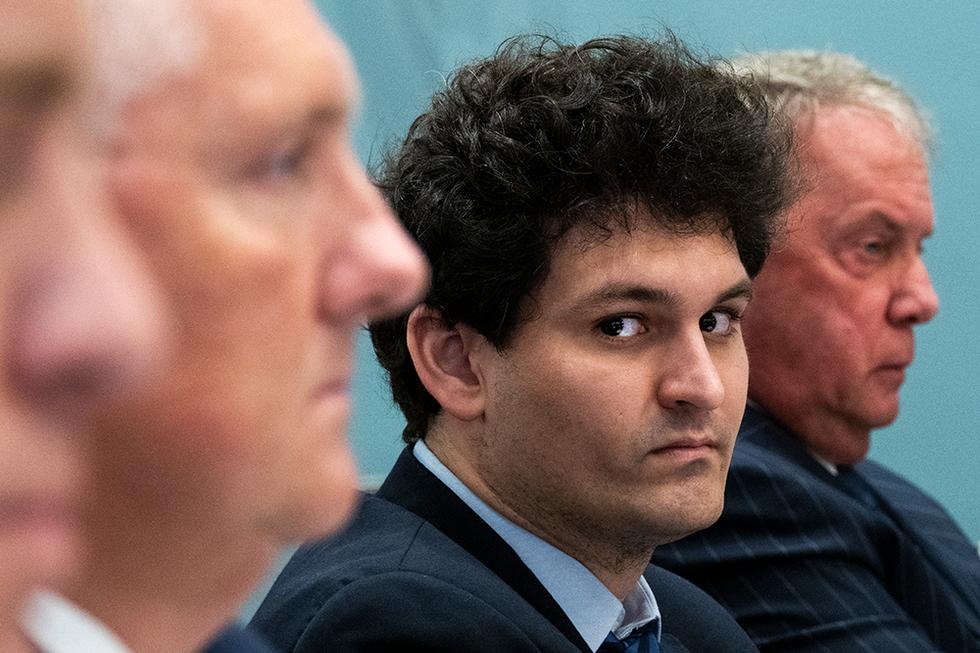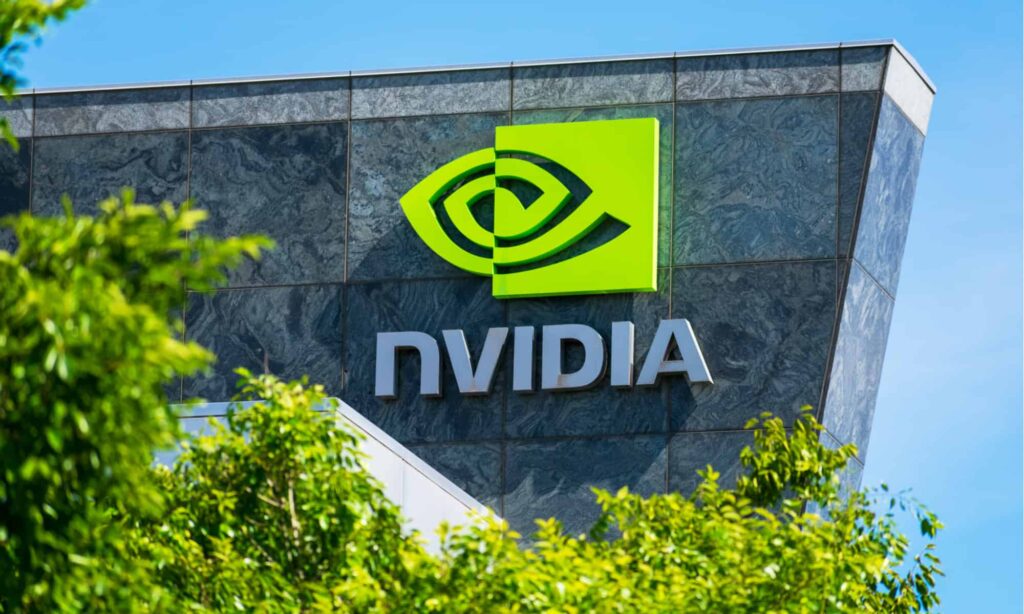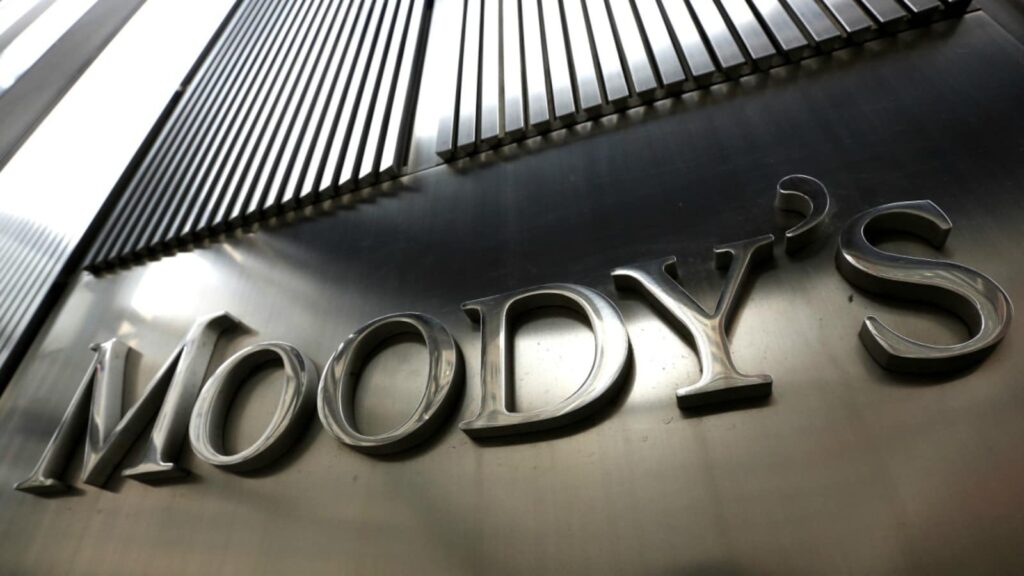Prosecutors in the United States have slapped former FTX cryptocurrency chief Sam Bankman-Fried with bribing Chinese officials, documents revealed on Tuesday.
The latest charge accuses the disgraced executive with bribing Chinese government officials to unfreeze accounts linked to his operations.
In new documents this morning, Sam Bankman-Fried charged with trying to pay a $40 million bribe to a Chinese government official.
— Teddy Schleifer (@teddyschleifer) March 28, 2023
Happy Tuesday! pic.twitter.com/17znPuMyed
It read: “In or about November 2021, Samuel Bankman-Fried, a/k/a ‘SBF,’ the defendant, and others directed and caused the transfer of at least approximately $40 million in cryptocurrency intended for the benefit of one or more Chinese officials in order to influence and induce them to unfreeze the Accounts.”
Continuing, it stated the indictment included the “twelve counts contained in the S3 Superseding indictment” along with the “additional count for conspiracy to violate the anti-bribery provisions of the Foreign Corrupt Practices Act (‘FCPA’), in violation of 18 U.S.C. § 371.”
The news comes after Bankman-Fried was released on $250 million USD bond after Bahamian authorities detained and extradited him to the United States late last year.
Courts have charged him with wire and financial fraud, in addition to contributing illegal political donations and defrauding investors in the list of offences outlined in his case.
The United States Commodity Futures Trading Commission (CFTC) chair, Rostin Behnam, restated at a congressional hearing on Tuesday that Ether was a commodity.
At the CFTC class action lawsuit against cryptocurrency giant Binance, the organisation designated major cryptocurrencies such as Bitcoin, Ether, Litecoin, and stablecoin Binance USD (BUSD) as commodities. The lawsuit accuses Binance of illegally trading cryptocurrency coins.
Behnam’s comments contradict previous statements from the US Securities and Exchange Commission (SEC).
When asked by lawmakers at the House Appropriations Committee, Benham said: “I believe they are a commodity. And because they are listed on CFTC exchanges, we do have a regulatory relationship – obviously with the derivatives market and that product, but the underlying market as well.”
He added that his view pushed the case against Binance and financial institutions trading the top two cryptocurrencies—Bitcoin and Ether—with further trading platforms set to face crackdowns.
Conversely, SEC chair Gary Gensler has previously stated that proof-of-stake tokens were likely securities. Companies selling such digital assets would need to register for regulations.
The CFTC’s change in position comes amid a major crackdown on Binance, namely as Changpeng Zhao’s crypto empire faces US regulatory scrutiny for allegedly selling unregistered securities. The SEC also filed a lawsuit against Paxos and its role in minting BUSD tokens for the crypto firm.
News reports said that Binance had reached out to the SEC from 2018 to 2019, citing documents, statements, and former employees.
The alleged visit took place when Gensler served as the head of the CFTC and a Massachusetts Institute of Technology (MIT) professor.
The British Treasury is set to pass legislation to back a framework for cryptocurrency promotion later in the year, it announced on Twitter on Tuesday.
The news comes after the Government published a draft amendment of the Financial Services and Markets Act (FSMA) on Monday.
Lawmakers will expand powers for the Financial Conduct Authority (FCA) to monitor and regulate cryptocurrency companies under the FSMA.
The Government said in its tweet it hopes to protect investors and consumers from “misleading crypto asset promotions.”
Yesterday the Government laid legislation to safeguard against misleading cryptoasset promotions.
— HM Treasury (@hmtreasury) March 28, 2023
Subject to parliamentary time & approval, this measure will likely be in force by late 2023 & apply to all cryptoasset promotions made to UK consumers from the UK or abroad 🌎.
It tweeted on Tuesday: “Yesterday the Government laid legislation to safeguard against misleading cryptoasset promotions. Subject to parliamentary time & approval, this measure will likely be in force by late 2023 & apply to all cryptoasset promotions made to UK consumers from the UK or abroad.”
Additionally, the FSMA will also provide a limited-time exemption for cryptocurrency firms registered with the FCA to self-approve ads. Currently, cryptocurrency enterprises can not approve their own ads.
Fees for third-party firms to approve crypto ads cost from £5,000 to £15,000 depending on the proposals.
The news comes as the United Kingdom debated a potential framework for incorporating cryptocurrencies and digital assets in the British economy.
Whitehall also plans to provide support for a central bank digital currency (CBDC) to offer consumers and investors alternatives to cash, it was reported earlier this month.
Gemini, the cryptocurrency exchange founded by identical twins Tyler and Cameron Winklevoss, has planned to open a global crypto derivatives exchange.
According to a report from The Information, the platform will sell perpetual futures, widely considered high-risk assets and banned in the United States for retail traders.
The futures are derivatives that do not expire and can potentially trade with significant leverage.
The report continued that Gemini had contacted trading firms to collaborate for potential foreign operations, sources told The Information.
Several major events have kicked off in the US, namely after Binance, Coinbase, CoinEx, Kraken, and many others have faced intense scrutiny from federal and state regulators.
Authorities from the Securities and Exchange Commission, the Commodity Futures Trading Commission (CFTC), and New York Attorney General (NYAG) have filed lawsuits against the companies for allegedly selling unregistered securities.
The news could see numerous firms search for overseas headquarters for their main operations to circumvent US law.
Gemini slammed the SEC in recent months after the latter sued his company for its business with now-defunct crypto exchange platform Genesis. The SEC accused Gemini of selling unregistered securities linked to its Earn programme, which allowed holders to earn exclusive benefits and interest rates.
Arbitrum’s Twitter account was suspended on Monday due to a reported error in its account.
Twitter reinstated the Ethereum rollup platform’s account hours after the incident.
A representative of the Arbitrum Foundation said that Twitter Support told him that there were “systems that find and remove multiple automated spam in bulk.”
The company’s account had been “flagged as spam by mistake.”
The news comes just a week after Arbitrum rolled out its novel governance token. Cybercriminals used spoofing tactics to phish for investors funds amid the token launch.
Instead of suspending all the scam Arbitrum accounts, Twitter decided to solve the problem once and for all – suspend the actual Arbitrum account… I'll give props to Twitter. They are consistent… consistently awful. https://t.co/e7Fxa5Xfcc
— Toghrul Maharramov📜 🇺🇦 (@toghrulmaharram) March 27, 2023
Twitter had been “consistently awful” with tackling scam accounts despite Arbitrum’s account being temporarily suspended, Scroll developer Togrhul Mahararramov said in a Twitter post.
He said: “Instead of suspending all the scam Arbitrum accounts, Twitter decided to solve the problem once and for all – suspend the actual Arbitrum account… I’ll give props to Twitter. They are consistent… consistently awful.”
Cryptocurrency king Bitcoin (BTC) nosedived to less than $27,000 following a United States Commodity Futures Trading Commission (CFTC) lawsuit against the world’s biggest crypto exchange.
Binance and company founder Changpeng Zhao face charges from the US agency, who cited allegations the crypto exchange had violated US law by offering unregistered derivatives.
Following the news, trading data revealed, BTC fell to fresh lows at roughly $26,525 USD. Numerous cryptocurrencies such as Ether (ETH) and BNB Chain fell to $1,703 and $310 USD the same period.
My Response to the CFTC Complaint | Binance Blog https://t.co/TadyotM7HN
— CZ 🔶 Binance (@cz_binance) March 27, 2023
Responding to the complaint, Changpeng Zhao said: “Upon an initial review, the complaint appears to contain an incomplete recitation of facts, and we do not agree with the characterization of many of the issues alleged in the complaint. While we will only be able to give full responses in due time, we will address a few key points below.”
Binance-US Regulator Row
The CFTC filed the lawsuit in the US District Court of Illinois. The lawsuit is the latest in a major crackdown from the US regulator. Cryptocurrencies such as Binance USD (BUSD), Tether (USDT), BTC, Ether (ETH), and others were designated as commodities in the lawsuit.
Authorities, including those at the US Securities and Exchange Commission (SEC), have targeted numerous exchanges, including KuCoin, Coinbase, CoinEx, and many others for allegedly selling unregistered securities.
In recent months, US Financial Crimes Enforcement Network (FinCEN) have also claimed that Binance also had ties to Russian darkweb financing, sparking strong condemnation from the crypto platform.
Additional crackdowns on the cryptocurrency exchange include an SEC lawsuit against Paxos, which supplied BUSD, causing Coinbase to suspend trading the latter.
NVIDIA, a world-class chipmaker for graphical processing units (GPUs), said in a report that cryptocurrencies did not “bring anything useful for society.”
NVIDIA’s chief technology officer, Michael Kagan, told the Guardian that innovations using its processing technologies such as artificial intelligence (AI) programme ChatGPT were better than people mining cryptocurrencies.
He added: “All this crypto stuff, it needed parallel processing, and [Nvidia] is the best, so people just programmed it to use for this purpose. They bought a lot of stuff, and then eventually it collapsed, because it doesn’t bring anything useful for society. AI does.”
His comments come as numerous mining groups have begun using NVIDIA’s graphics cards to process cryptocurrencies. Continuing, he stated that ChatGPT allowed all users to create their own machines.
“You just tell it what to do, and it will. And if it doesn’t work the way you want it to, you tell it ‘I want something different’,” he added.
Continuing, Kagan explained that cryptocurrencies were similar to high-frequency trading, which he worked with at his former company Mellanox before NVIDIA bought out the firm.
He told the Guardian: “We were heavily involved in also trading: people on Wall Street were buying our stuff to save a few nanoseconds on the wire, the banks were doing crazy things like pulling the fibres under the Hudson taut to make them a little [bit] shorter, to save a few nanoseconds between their datacentre and the stock exchange.”
Concluding, he stated that he never believed that cryptocurrencies were “something that will do something good for humanity.”
“You know, people do crazy things, but they buy your stuff, you sell them stuff. But you don’t redirect the company to support whatever it is,” Kagan said.
The news comes after NVIDIA began restricting computing power to discourage people from mining Ethereum and allow customers to receive its GPUs for AI, gaming, and research. ChatGPT began on a supercomputer with roughly 10,000 graphics cards from the Santa Clara-based firm.
Group of Seven (G7) countries could see some of the world’s largest economies cracking down on cryptocurrency markets, a Kyoto News report found on Saturday.
The United States, United Kingdom, Japan, Canada, Germany, France, and the European Union are set to cooperate on boosting cooperation on transparency and consumer protection for crypto investors.
It also aims to tackle risks to global markets, the report added.
G-7 to push for tighter #cryptocurrency regulationshttps://t.co/HZDuyvqDKX#G7 #KyodoNewsPlus
— Kyodo News | Japan (@kyodo_english) March 26, 2023
The annual summit will take place in Hiroshima in May and will host the nations in a bid to create a coordinated framework for crypto regulations.
Several nations, including South Korea, the European Union, Japan, and the United Kingdom have begun outlining their crypto regulations. The latter has created a tentative framework amid a bill introduced in Parliament, which aims to increase powers of the Financial Conduct Authority (FCA).
The UK also aims to create a central bank digital currency (CBDC) to diversify monetary options for investors, small and medium enterprises (SMEs), and others.
The G20 also announced similar measures in February at its annual meeting in India this year. Efforts involved massive organisations such as the International Monetary Fund (IMF), the Financial Stability Board (FSB), and Bank for International Settlements (BIS).
Do Kwon, the Terraform Labs co-founder arrested on charges for defrauding investors, is set to appeal court decisions to extend his detention in Montenegro up to 30 days.
The executive’s legal representation confirmed the news of the appeal, local media Vijesti reported at the time. The decision comes after authorities detained him for using fake documents and passports at Podgorica airport while en route to Dubai, United Arab Emirates.
Montenegrin police extended his detention due to his potential to flee the country. Additionally, courts added that the foreign national’s identity had not been clearly identified, the report read.
The news comes after Kwon disappeared following the collapse of Terraform and its native token, Terra/Luna. After the crisis erupted, South Korean authorities suspected he had moved from Singapore, Serbia, and Dubai.
New York officials and the US Securities and Exchange Commission (SEC) also charged him with defrauding investors after his arrest in Montenegro on eight counts, including securities, wire, and commodities fraud.
Central bank digital currencies (CBDCs) could facilitate cross-border transactions to transform the global economy, Moody’s Investor Service said in a report.
In the document, it said that cross-border CBDC transactions would require new infrastructure, limiting the role of banking institutions significantly.
However, banks could also sharply reduce or remove settlement risks with the emerging technology.
The report said: “Banks would be able to make, clear, and settle cross-border payments at low cost and in seconds without needing to sign up to multiple payment systems or rely on correspondent banks in other countries.”
The technologies could also reduce banking profits from “payments, correspondent services and likely also from foreign-exchange transactions.”
It added: “In a CBDC-driven economy, banks may well need to redesign their operations. They may be obliged to join new networks and create the infrastructure necessary to support CBDC interoperability at scale, which will impose a burden on resources in the short term.”
Continuing, the report explained that CBDCs could resolve interoperability concerns over time with help from the Bank for International Settlements.
The report concluded: “Central banks may need to compromise on some of the decision-making to make their CBDCs interoperable.”
It also added that “digital islands” could surface, where some countries could conduct transactions while excluding or failing to facilitate transactions with others.
Moody’s Downgrades US, Florida’s DeSantis Doubles Down
The news comes after Moody’s downgraded US banks to “negative” last week. Numerous countries have debated creating a framework for CBDCs, including the United Kingdom, Japan, South Korea, the United States, and European Union, among others. China has rolled out numerous CBDC payment pilots, with customers successfully purchasing goods and services with the ‘red packet’ system.
Despite this, Florida Governor Ron DeSantis has opposed a federal CBDC for the United States and has vowed to block its use in the Sunshine State.
A group of states have backed DeSantis’ efforts to block the rollout of a federally-supported digital stablecoin, citing alleged ‘woke ideology’ and curtailed freedoms.












